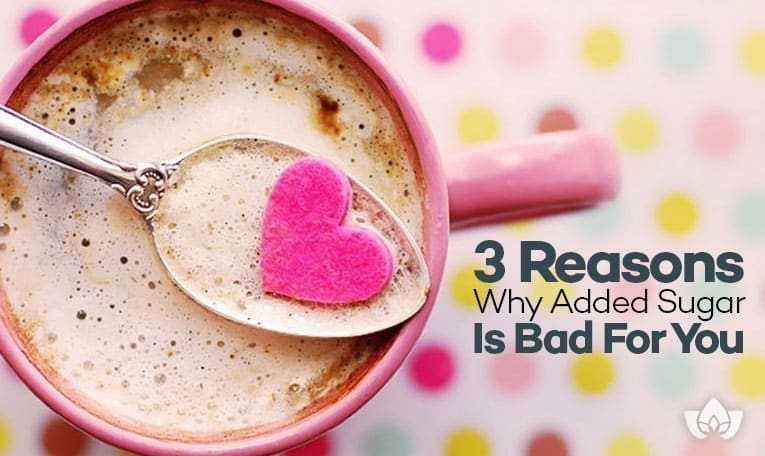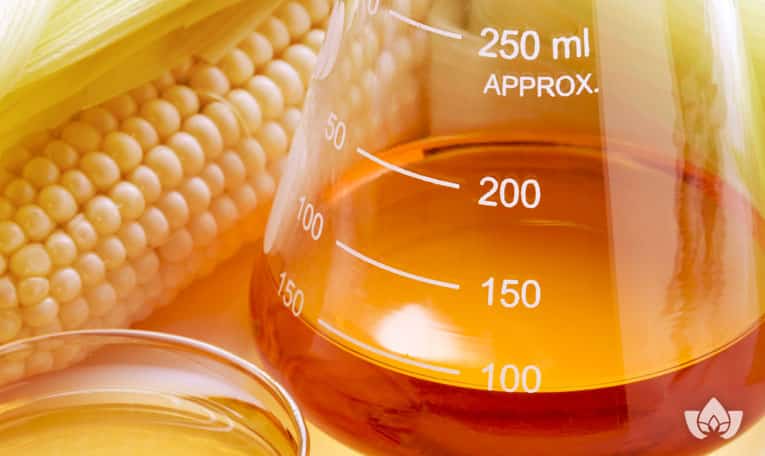
Wouldn’t it be great if all food was created equal?
That way you could binge on your favourite fast food chain or Ben & Jerry’s flavour to your heart’s content and not have to worry about the consequences.
Unfortunately, nutrition doesn’t work that way.
There are lots of things that should only be consumed in moderation.
When we eat too much of these things, our health often begins to suffer.
RELATED 5 Amazingly Unhealthy Foods To Avoid
That’s no secret to any health conscious person.
And it’s usually the things we crave the most that are the most detrimental to our health.
This is especially true for sugar, specifically added sugar.
My name is Dr. Maria Cavallazzi, a naturopathic doctor serving the greater Toronto area, and today I’d like to talk about the dangers of added sugar.
There are just so many reasons why added sugar is bad for you that this article could easily become a novel.
In fact, I’m always discussing with my clients seeking nutritional counselling about the health risks associated with too much sugar.
But let’s begin with the basics.
What is added sugar in the first place?
What is Added Sugar?
Remember when we said that all food wasn’t created equally?
Well, the same can be said about sugar.
Sugar comes in many different varieties; however, each variety may be broadly sorted into one of two distinct categories:
1. Naturally Occurring Sugar
Naturally occurring sugar refers to sugars found naturally in foods such as fruit and diary.
For instance, fructose is a naturally occurring sugar found in fruit whereas lactose is a type of sugar naturally found in dairy.
They show up naturally in these foods, and this article is not about them.
These types of sugars are the safest to eat.
This is because they contain enough additional components to control the speed at which they get absorbed into your blood stream.
As such, this article isn’t directed towards naturally occurring sugar.
So you can rest assured the next time you pick up an apple to snack on.
2. Added Sugar
Added sugars, on the other hand, are things like sucrose and high fructose corn syrup.
They’re made artificially and typically added to sweeten things that wouldn’t otherwise be sweet.
For example, adding a spoonful of white sugar to your morning coffee or layering icing sugar onto a birthday cake.
These types of sugars can cause numerous health complications when consumed, especially in excess.
Why Is Added Sugar So Bad For You?
But why is added sugar so terrible?
Well, for multiple reasons.
Below we’ll highlight some of the most prominent.
2. It Has Zero Nutritional Value
Added sugar is loaded with calories.
But then again, the same can be said for plenty of foods, right?
A pancake breakfast, for example, can have more than 1000 calories in it.
But here’s the thing: added sugar has absolutely no essential nutrients in it.
This is why we call it empty calories.
If a significant number of the calories you take in come from added sugar, that can mean a big part of your diet is providing you with no nutritional value.
This creates the strange situation we face these days in the western world where people are simultaneously overweight and undernourished.
For instance, a 2022 research conducted by Kobylińska et al. found that malnourishment is occurring more and more in overweight populations.
So essentially, added sugar is an entirely unnecessary part of your diet and cutting it out can do wonders for both your weight loss goals as well as your overall health.
In fact, you could live a full, healthy, fulfilling life without having eaten a single bit of added sugar.
2. Sugar Is Highly Addictive
Sugar is so addictive because of the way it makes us feel.
Particularly, it releases dopamine, the feel good hormone located in your brain.
RELATED: Frequently Asked Questions About Hormones
And the way this works is similar to what happens when you use addictive drugs, such as cocaine.
A 2008 study published in Neuroscience & Biobehavioral Reviews tested rats to see if they could develop a dependence on sugar.
By intermittently giving the rats access to sugar, they could get them hooked on the stuff.
They craved it in the same way rats who are addicted to drugs crave their next fix.
So if you have a personality that’s susceptible to addiction, or have the addiction gene run in your family, you may be at a higher risk of developing a sugar dependency.
But the worst thing about sugar addiction is the culture surrounding sugar.
If you offered someone a drink, for example, and they politely declined because they were a recovering alcoholic, would you push them to take the drink?
Of course not.
But if someone is offered a slice of cake and they say they’re cutting back on sugar, the reaction is generally something like: “come on, one slice won’t hurt!” or “it’s bad luck not to have birthday cake!”
On top of this, products containing added sugars are everywhere.
Quitting drinking may be made easier by avoiding places that encourage it, such as bars or nightclubs.
This allows you to resist the temptation.
But sugar is quite a bit different.
If you want to stop eating added sugar, you’ll need some strong willpower.
Give us a call at The Mindful Healing Clinic to get more tips on how to avoid sugar as well as how to recover after a sugar binge.

3. Added Sugar Is Hard On Your Liver
When you eat added sugar, your body breaks it down into two simpler sugars: fructose and glucose.
Glucose is the more common sugar.
It’s found in every single living organism on the planet, which means it’s in every single thing you eat.
We need the stuff.
Fructose, on the other hand, isn’t necessary for survival.
When you eat fructose, it goes to your liver to get metabolized.
Now, this is one of your liver’s jobs, so a moderate amount of fructose (like from eating fruit) is perfectly fine.
Your body will turn it into glycogen and store it in your liver until your body needs to use it to keep your blood sugar levels at a healthy level.
But your liver can only store so much glycogen.
And if your liver is already full, it will turn that excess fructose into fat.
So, the more added sugar you eat, the more fat accumulates in your liver, which can cause some serious problems.
Sugar, Not Fat, Makes You Fat
In the past, doctors, nutritionists, and health gurus of all stripes suggested low fat diets as the way to fight obesity and maintain a healthy weight.
It makes sense, right? You don’t want fat, so don’t eat fat.
Sadly, this isn’t the case.
It’s sugar, not fat, that creates fat in our bodies.
Study after study has confirmed the causal link between sugar consumption and obesity.
It’s also linked with type 2 diabetes and heart disease.
For example, if you drink one or two sugary drinks per day, you have a 26% greater chance of developing type 2 diabetes (source).
You also have a 20% higher risk of having a heart attack, or dying from one (source).
In children, it’s even worse.
For each can of soda a child consumes in a day, the odds of obesity increase by 60% (source).
These are just a few horrifying examples of what sugar can do to our bodies.
That’s why paying attention to what you’re putting into your body is so important.
Speak to us today at The Mindful Healing Clinic to learn more about how you can control your appetite and reduce your junk food cravings.
Book Your Appointment With The Mindful Healing Clinic Today
If you’re hooked on sugar, there is help available.
Contact us at the Mindful Healing Clinic to book your FREE health and wellness session.
You’ll get a chance to explain your concerns and ask any questions, and from there we’ll help you understand what comes next.
Book your appointment with The Mindful Healing Clinic today to break your sugar addiction today.
Until next time,
Dr. Maria Cavallazzi, N.D
Mindful Healing Naturopathic Clinic
Mississauga, ON L5M 1L7
(905) 819-8200
► https://g.page/MindfulClinicNaturopathic
Dr. Maria Cavallazzi is a medical doctor from Colombia where she practiced as a family physician for 8 years until she moved to Canada 16 years ago and became a naturopathic doctor in Mississauga.


